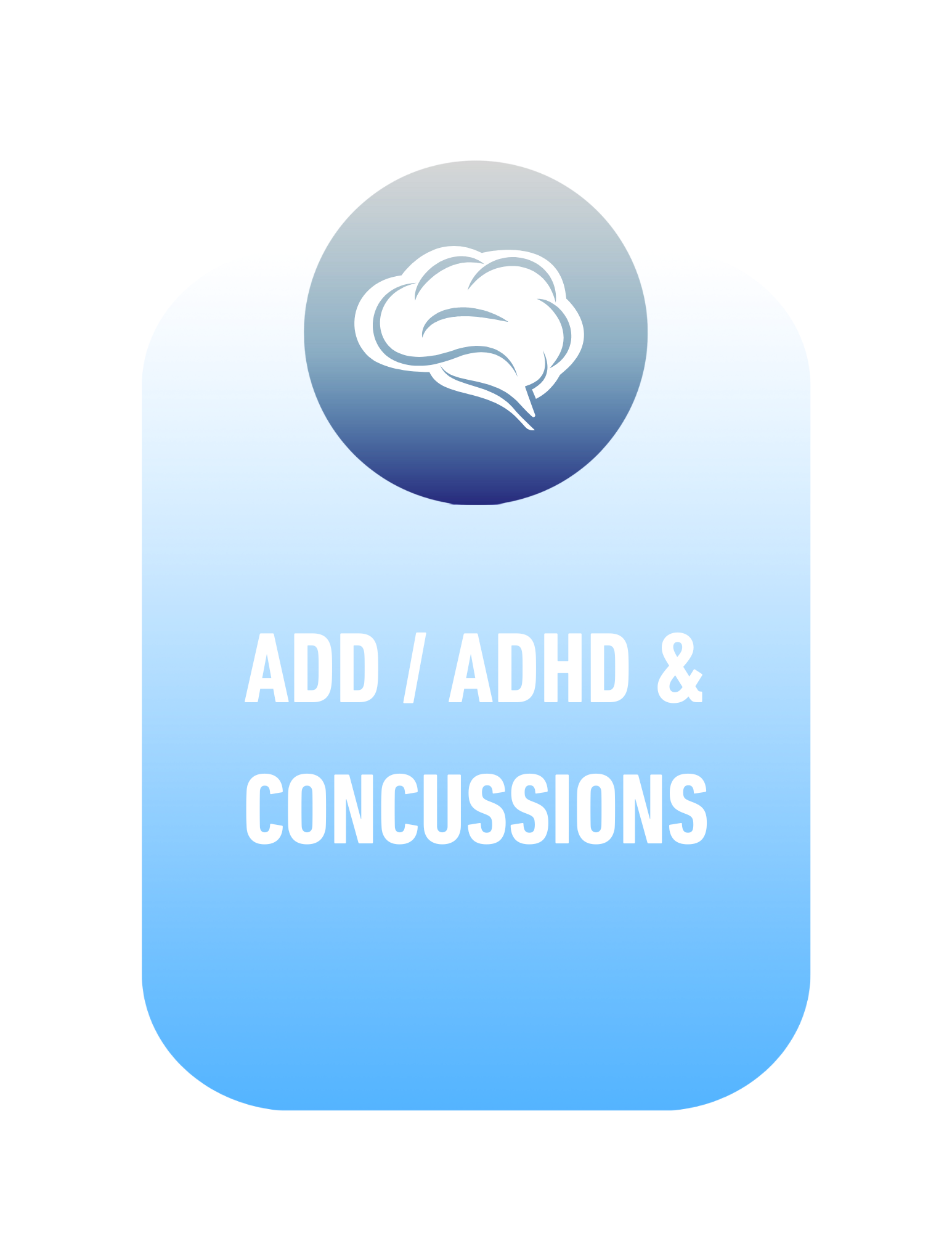
NEUROFEEDBACK
A MENTAL SKILLS TRAINING INTERVENTION FOR ADD / ADHD, FLOW STATES & CONCUSSIONS
Located in Charlotte, North Carolina
WHAT IS NEUROFEEDBACK?
Neurofeedback is a noninvasive, neuroscience intervention which measures & trains brainwaves. This approach provides real-time feedback about where the client’s brain is functioning efficiently versus where their brain needs training. Ultimately, this mind-body approach can help clients develop neural stability which leads to an increased stress-threshold tolerance.

WHO IS NEUROFEEDBACK FOR?
Everyone! Whether you are having difficulty with attention & focus or experiencing issues with sleep regulation, Neurofeedback has the potential to address many issues. The following conditions have published scientific evidence that suggest Neurofeedback can be an effective intervention when addressing these areas: Addiction, Anxiety, ADHD/ADD, Depression, Learning Disabilities, Post-Traumatic Stress Disorder, Muscle Tension, Sleep Disorders, Autoimmune Dysfunction, Chronic Fatigue Syndrome, Chronic Pain, Cognitive Decline in the Elderly, Obsessive-Compulsive Disorder, Tourette’s Syndrome, Traumatic Brain Injury, & Parkinson’s Disease. The following areas are where Ben specializes in helping his clients:
HOW DOES NEUROFEEDBACK WORK?
In Ben’s neurofeedback practice, he uses Brain Mapping technology (aka QEEG) to analyze how different areas of an individual’s brain are functioning & interacting with one another. There are different names for certain brainwaves, but overall research suggests that the speedier brainwaves are used for thinking while the slower brain waves are used for relaxation and maintaining involuntary bodily functions. By identifying where the client’s brain needs to speed up or slow down, he is able to design an individualized neurofeedback training program with the intention to help clients optimize their brain wave functioning while also alleviating adverse symptoms.
Neurofeedback works through Operant Conditioning, which is a form of learning that uses a reward to modify behavior. For example, during a neurofeedback session as the brainwaves change in a healthier way, you may hear a bell ring or you will see a visual image changing on a computer screen . This feedback encourages the brain to more easily move into healthier functional ranges over time. Research shows that neurofeedback promotes healthier blood flow to the cortex of the brain, and after repeated sessions long standing changes are maintained long after Neurofeedback training is complete.

ADDITIONAL RESOURCES & RESEARCH
FAQs
-
Neurofeedback is non-invasive. There are NO needles and NO electricity goes into the brain. The brain is changed through visual and auditory feedback ONLY.
-
You will start to feel better! After identifying your goals, Ben will help you track progress and identify how the sessions are improving your brain functioning over time.
-
Neurofeedback has a plethora of research that is both promising but also offering valid criticism. For instance, there are no known double blind studies that support the intervention’s efficacy. However there is also research that demonstrates measurable changes that occur within the brain such as blood moving to the areas of the brain that are being trained, which may be associated with improved brain functioning.

Interested In Services?
Use the contact form below to schedule a free consultation call to see if Ben’s services are the right fit for what you are looking for!















